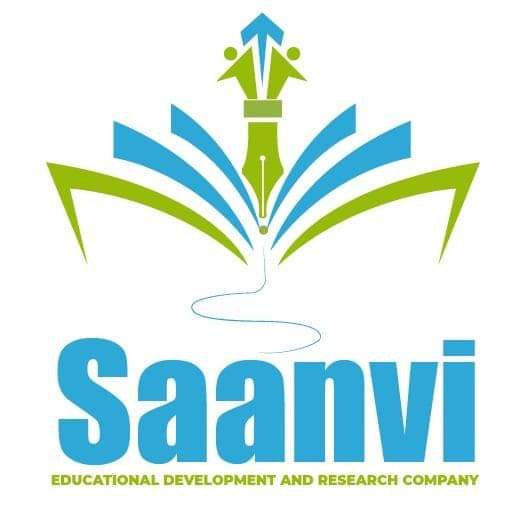Have you ever wondered how you would go through your day if there were no smartphones? I mean, just imagine trying to send a meme to your friend through a pigeon. It doesn’t sound very convenient, right? Forget about phones; think about a world with no electricity, medicines, literature, music, or anything else that we cannot live without. If I asked you how any of these essentials came into existence, you might answer with ‘science’ or ‘invention’. But what is the common link that acts as a bridge between human knowledge and the genesis of any invention? The answer to that question would be continuous and relentless research. In simple words, research can be defined as a well-organized way of solving any problem or finding answers to any question. It isthe creation of new knowledge or the use of existing knowledge in a unique way so as to generate new insights, methodologies, and understandings about a particular field or question. The process of research involves identifying a problem, formulating hypotheses, collecting data, analyzing information, and drawing conclusions. According to the American sociologist Earl Babbie, “research is a systematic inquiry to describe, explain, predict, and control the observed event or phenomenon.” It is what facilitates an investigation of materials so as to prove facts and discover newer conclusions on a pre-existing subject. Not only that, research is also critical in identifying problems, promoting innovation, discovering solutions, and enhancing the existing knowledge regarding any subject matter. Due to its immeasurable impact in any and every sector, research and its culture have been essential for progress in every corner of our lives.
In the field of education, research opens the door for the fostering of effective teaching and learning practices. It identifies the flaws in the system and shows a more effective way of imparting knowledge, which also enhances the learning process. If it were not for educational research, we would still have been writing with slates and chalk. The increment in the standard of educational curriculum is another consequence of research that has helped in the evolution of subject matters that teachers and students discuss and share ideas about. Likewise, another research-heavy field is the health sector, where not only have there been improvements in healthcare systems but also modernization of medical treatments and understanding of diseases. All of this has led to a significant increase in life expectancy and has also decreased the contraction of disease through awareness among the masses regarding contagious diseases. Similarly, in the technological field, the significance of research is greater than in any other sector. The world’s leading companies in tech innovation are spending billions of dollars on their research and development programs. Every device and gadget that have made our lives easier and more convenient than ever are the direct results of such R&D. Lastly, in environmental studies, research helps in identifying environmental issues, finding sustainable solutions, and preserving natural resources.
Despite all the advantages, the state of research, especially in a country like ours, is quite delicate. One of the major reasons for this is our inability to make people aware of the impact of research on the effective development of any sector of our lives as well as the nation as a whole. Similarly, the inaptitude of the education system to include research activities in the curriculum is another factor. The culture of following international trends and not being trailblazers in any field has also made us think that conducting research is a waste of time. I mean, why work hard to find something new when you can just copy the work of others? Even corporations capable of funding such activities are refraining from R&D or are just doing the bare minimum. Specialized expertise and unwavering dedication are also vital for the success of any sort of research program. Nepal does have its fair share of talents; however, especially in the current day, there is a huge crisis in retaining this talent within the country. Brain drain is at an all-time high due to mismanagement on the government’s part and the increasing ambitions of the youth. This trend has certainly hindered the growth of the research culture in Nepal. Our country has failed to create a suitable atmosphere to foster research talent due to a lack of incentives, inadequate recognition, and a lack of career growth prospects in the research sector. The lack of proper infrastructure, technology, and skilled manpower also hinders the quality and scope of research. Additionally, insufficient government support and a shortage of reliable data sources pose significant obstacles.
The formation of private research companies could be vital in addressing such challenges and mitigating the cons of government-sponsored research. Private companies can quickly gain funds and mobilize them effectively, provide a platform for higher quality research, and offer better opportunities for researchers so as to promote and motivate them to work in Nepal. Moreover, such companies can help in the smooth translation of discoveries from research into practical applications.
However, starting a new research company in Nepal is not child’s play. One must be ready to face a large number of obstacles beforehand. Securing funding during the starting phase will be a major obstacle, as investors may be unsure due to the risks associated with research firms in countries like ours. Additionally, difficulties in proper regulation, a lack of suitable manpower, hectic and lethargic procurement procedures seeking experiences and a lack of a supportive environment add to the challenges faced by newer private research organizations like ours. In order to move past these barriers and develop a blooming research culture, efforts from the private, public and Non-government sectors are required. Promoting such partnerships can help collect resources and expertise from both sectors, creating a favorable environment for research. Furthermore, creating platforms for knowledge sharing and collaborations between researchers, as well as investing in research infrastructure, are also vital. Focusing on the value of research careers through educational reforms, and establishing research-related institutions can also attract and retain talent within the country.
In conclusion, research culture is undeniably a fundamental element for effective development across various sectors. While Nepalese institutions are facing challenges in conducting effective research, the promoting private research companies, along with the support from government policies and co-operative efforts of the researchers, can foster the path for a rich and booming research environment. Encouraging support for research institutions, promoting dedicated workforce, and providing opportunities for growth are essential for taking advantage of the potential of research in Nepal.





























